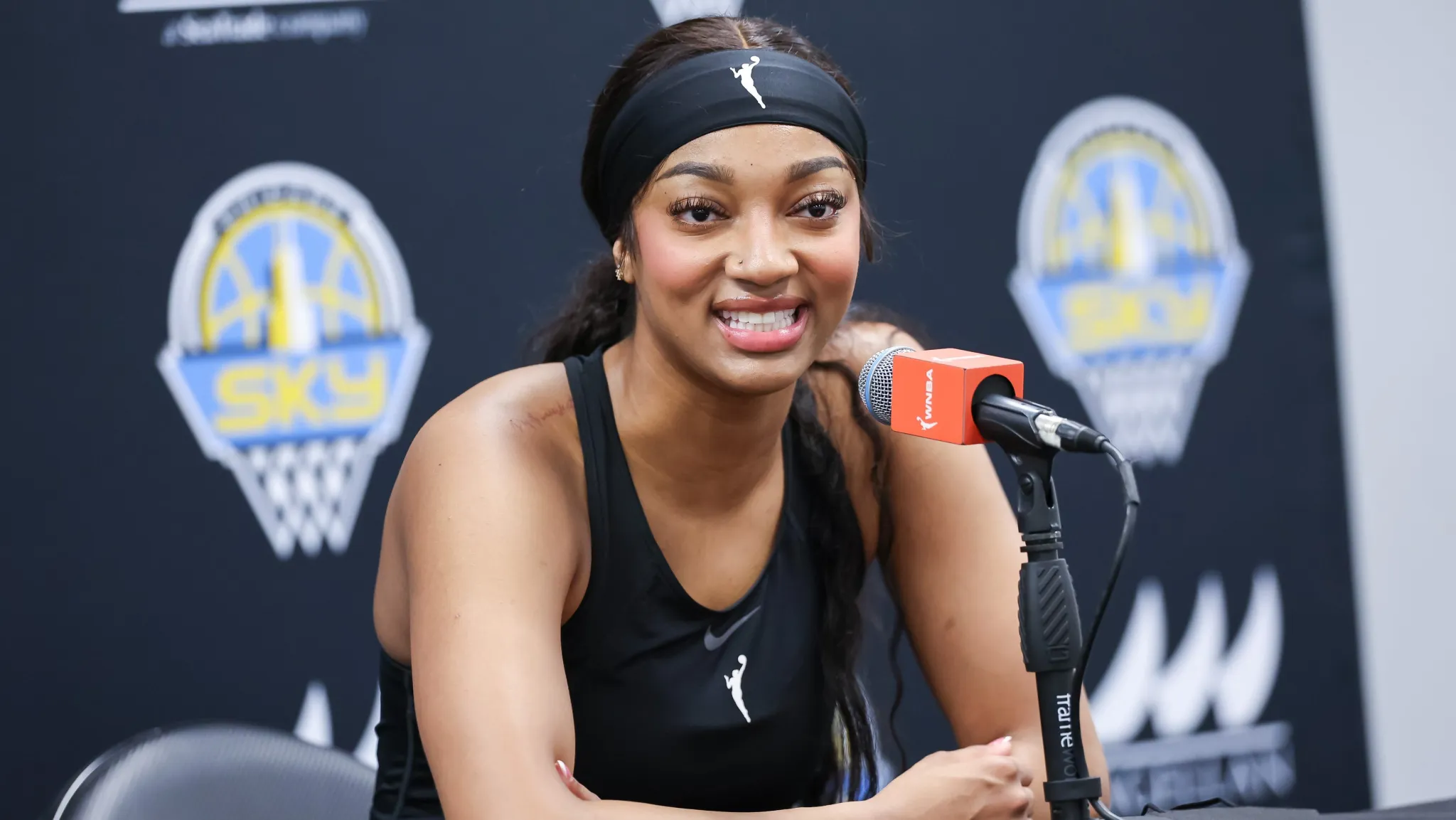
“Angel Reese Embraces ‘Villain’ Label: ‘I’ll Keep Being Me'”
By Sports Desk | September 27, 2024
Angel Reese, the star forward of LSU’s national champion women’s basketball team, has become one of the most polarizing figures in college sports. Known for her dominant on-court performances, Reese’s unapologetic attitude has earned her both widespread admiration and intense criticism. In a candid interview, she opened up about the “villain” label that’s followed her since her meteoric rise to fame and how she’s learned to embrace the role.

From Rising Star to Controversial Figure
Reese has been a dominant force in women’s basketball for years, but her spotlight grew even brighter during the 2023 NCAA Women’s Basketball Tournament. She led LSU to its first-ever national title, averaging 23 points and 15 rebounds throughout the tournament. But it was not just her stats that got people talking—it was her swagger.
During the national championship game against Iowa, Reese made headlines for taunting Iowa star Caitlin Clark, mimicking her famous “you can’t see me” hand gesture. While some saw it as standard competitive fire, others labeled it unsportsmanlike, sparking a national conversation about race, gender, and sportsmanship.
“I know people are going to have something to say, no matter what I do,” Reese reflected. “The taunt was just me being me, expressing my emotions in the moment. If you don’t like it, that’s fine, but I’m not going to change who I am.”
The Burden of the Villain Label
For many, that moment cemented Reese’s “villain” status in the eyes of the public. She was criticized for lacking humility, while others defended her, calling out the double standards in how male athletes are celebrated for similar behavior. Reese acknowledges the divide but doesn’t let it weigh her down.
“I’ve been called a villain, cocky, too emotional—you name it,” Reese said. “But what people don’t realize is, I’ve always had to be tough. Growing up in Baltimore, I learned early on that being nice doesn’t get you far. I wasn’t handed anything; I worked for everything. So when people try to label me, it’s like they’re trying to take away my story.”
Embracing the Role
Instead of shying away from the criticism, Reese has leaned into her “villain” image. On social media, she often posts unapologetic responses to detractors, and her confidence shines through in interviews and public appearances. She’s aware that her boldness, particularly as a Black woman, comes with its share of challenges but believes it’s crucial to remain authentic.
“Being a Black woman in the spotlight, there’s always going to be a microscope on you,” she said. “But I’m not going to dim my light because someone else is uncomfortable with it. If people want to call me a villain, I’ll wear it proudly.”
Reese’s authenticity has also made her a fan favorite among those who see her as a trailblazer for the next generation of athletes. Her unapologetic attitude has resonated with young girls who see themselves in her confidence and determination. “I get messages all the time from girls who say I inspire them,” she shared. “That’s what keeps me going.”
Beyond Basketball
Beyond the basketball court, Reese is focused on building her brand. In an era where college athletes can profit from their Name, Image, and Likeness (NIL), Reese has signed multiple endorsement deals with major companies, further solidifying her place as a cultural icon.
“I’m more than just a basketball player,” Reese said. “I want to show people that you can be great on and off the court.”
As Reese continues to embrace the “villain” label, she’s rewriting the narrative on what it means to be a fierce, unapologetic competitor in women’s sports. For her, the “villain” persona isn’t something to shy away from—it’s a badge of honor.
“I’ll keep being me,” Reese said. “And if that makes me a villain, so be it.”
:max_bytes(150000):strip_icc():focal(768x199:770x201)/Angel-Reese-WNBA-081924-tout-9e9c9f44cf17491890b96c6c3cc29288.jpg)
Angel Reese’s rise to prominence has sparked conversations that transcend sports, touching on issues of race, gender, and empowerment. With her determination and confidence, it’s clear that she’s not only shaping the future of women’s basketball but also paving the way for a new generation of athletes who aren’t afraid to be themselves.
Leave a Reply